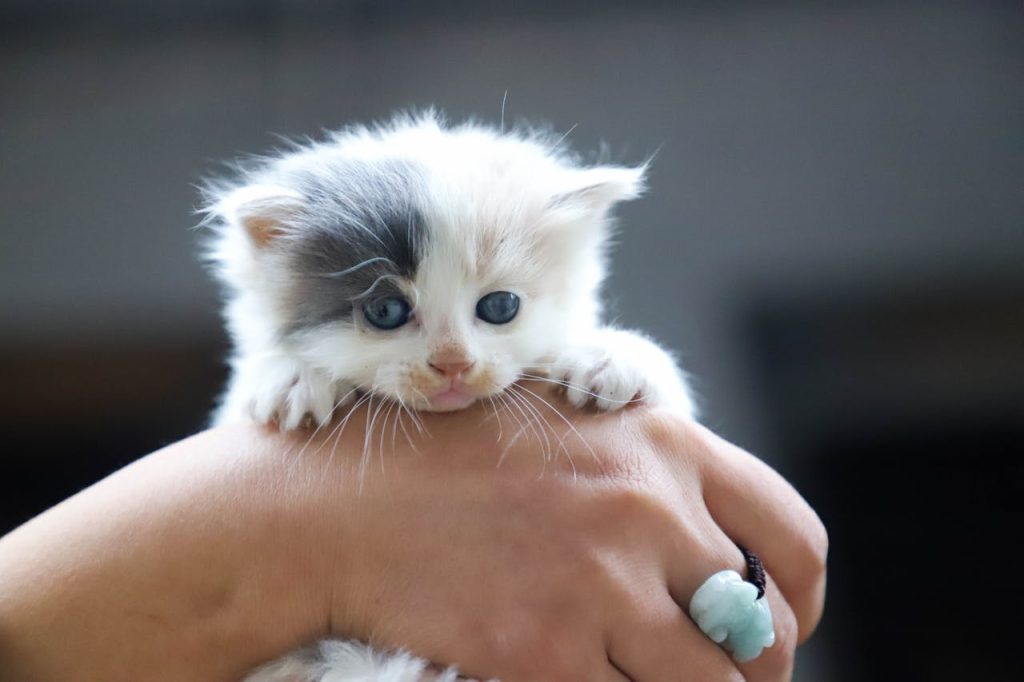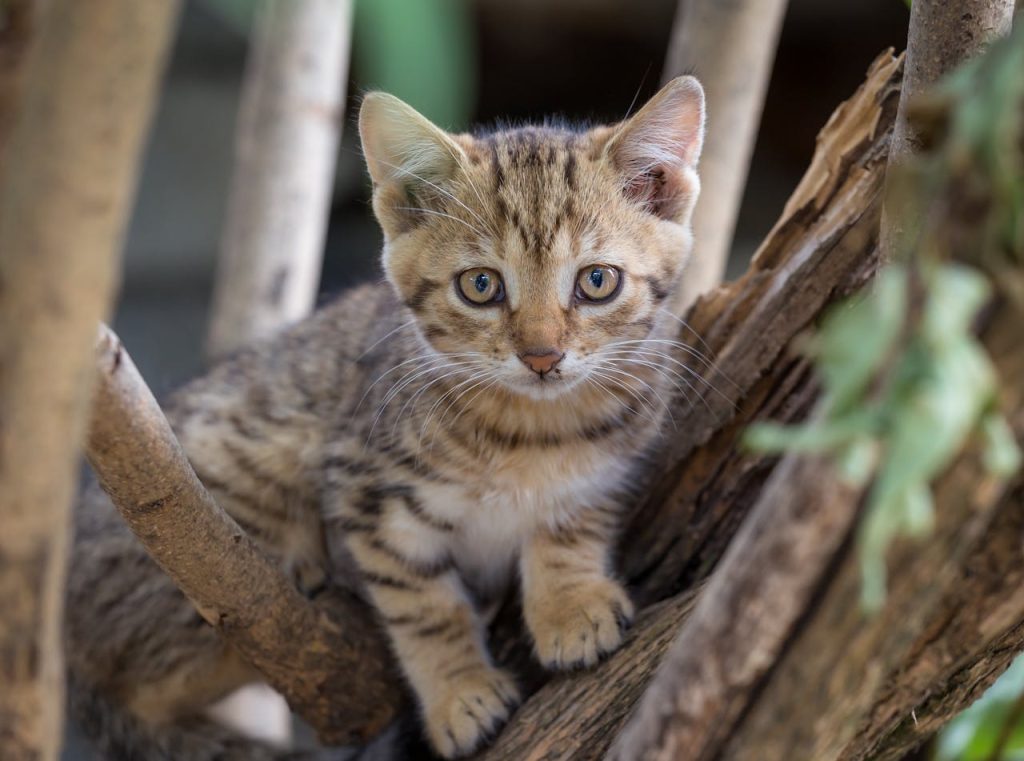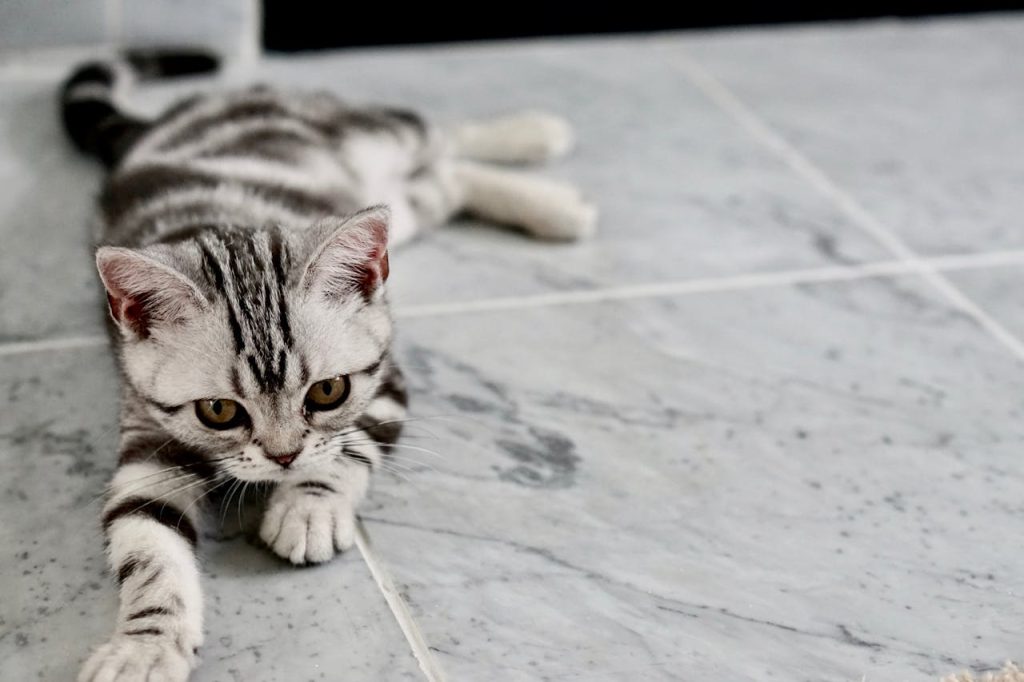Bringing a kitten into your home is an exciting and heartwarming experience. However, selecting the right kitten requires careful consideration to ensure you choose one that is not only adorable but also healthy, obedient, and intelligent.
A well-chosen kitten will grow into a well-adjusted cat that brings joy and companionship to your life. In this comprehensive guide, we will walk you through the essential aspects of choosing the perfect kitten under 15 key topics, ensuring a rewarding and fulfilling pet ownership journey.
Table of Contents

Observe the Kitten’s Health
A kitten’s overall health is the most critical factor to consider when choosing a new pet. Healthy kittens have bright, clear eyes, a clean nose, and a shiny coat.
Check for any signs of illness such as watery eyes, nasal discharge, or sneezing, which could indicate infections.
Example: A kitten that actively plays and explores its surroundings is likely in good health, while a lethargic or overly sleepy kitten might need medical attention.
Assess Behavior and Temperament
Each kitten has a unique personality, and it’s important to find one that aligns with your household dynamics.
Some kittens are naturally playful and energetic, while others may be more reserved and shy. Spend time observing how the kitten interacts with people and other animals.
Example: If you prefer a lap cat, choose one that enjoys cuddling and being held rather than one that hides or struggles to escape.
Check Socialization Skills
A well-socialized kitten should be comfortable with human interaction and curious about its environment.
Social kittens will approach you with confidence and show interest in their surroundings.
Example: A kitten that purrs and rubs against your hand has likely been well-handled and exposed to human contact from an early age.

Inspect the Coat and Skin
A healthy kitten should have a soft, full coat without bald patches, dandruff, or fleas. Examine the skin for signs of irritation, scabs, or redness.
Example: If you find tiny black specks (flea dirt) on the kitten’s fur, it may have a flea infestation that requires treatment.
Evaluate Eating Habits
Kittens should have a good appetite and show excitement during feeding times. Observe their eating habits to ensure they are consuming enough nutrition appropriate for their age.
Example: A healthy kitten will eagerly eat its food, while a kitten that avoids eating or vomits frequently may have digestive issues.
Examine the Ears and Hearing
A kitten’s ears should be clean, odor-free, and free of excessive wax or debris. Test its hearing by making soft noises and observing its response.
Example: A kitten that quickly turns its head toward the source of the sound has good hearing, whereas a lack of response may indicate hearing impairment.

Check the Litter Box Habits
Kittens typically learn to use the litter box from their mother. Check if the kitten is already litter-trained by observing its habits.
Example: A well-trained kitten will instinctively use the litter box, while one that avoids it may need additional training and patience.
Interaction with Other Animals
If you have other pets, it’s essential to choose a kitten that shows positive interactions with them. Observe how the kitten responds to other cats or dogs in the environment.
Example: A kitten that sniffs and plays gently with other animals is likely to integrate well into a multi-pet household.
Consult with a Veterinarian
Before bringing a kitten home, it’s crucial to schedule a veterinary check-up to assess its overall health and ensure it’s free from genetic conditions or infections.
Example: A veterinarian can provide vaccinations, flea treatments, and dietary recommendations for your new pet.

Check for Signs of Intelligence
An intelligent kitten will quickly adapt to new environments, respond to stimuli, and learn commands or routines easily.
Example: A kitten that follows your hand movements or responds to its name demonstrates intelligence and trainability.
Playfulness and Activity Level
Playfulness is a key trait of a healthy kitten. It should engage with toys, chase objects, and display curiosity about its surroundings.
Example: A kitten that eagerly pounces on toys and explores new spaces is likely active and mentally stimulated.
Examine the Eyes and Vision
Clear, bright eyes without any discharge or cloudiness are signs of good eye health.
Example: A kitten that tracks a moving toy across the room without difficulty has good vision, whereas a kitten with cloudy eyes might have vision impairments.
Investigate the Kitten’s Background

Learning about the kitten’s history, including its parents and previous environment, can give insights into its health and temperament.
Example: A kitten raised in a clean, loving home is more likely to have a stable personality than one from a crowded or unsanitary environment.
Ask About Vaccination and Deworming History
Ensure the kitten has received necessary vaccinations and deworming treatments appropriate for its age.
Example: A kitten with an updated vaccination record is less likely to develop preventable illnesses.
Trust Your Instincts
Ultimately, your instincts play an essential role in choosing the right kitten. If you feel a special bond with a particular kitten, it’s likely the right choice for you.
Example: A kitten that makes eye contact and follows you around might be the perfect match.
If you’re interested in learning more about why cats make such great pets, check out our article: Why Cats Are the Best Pets?

Conclusion
Choosing the right kitten involves careful observation, patience, and research. By following these guidelines, you can ensure that your new furry friend is healthy, intelligent, and obedient.
Remember, a well-chosen kitten will bring joy and companionship for years to come. Take your time, trust your instincts, and enjoy the process of welcoming a loving new addition to your home.
FAQs
What should I feed my new kitten?
Provide high-quality kitten food that meets their nutritional needs, including protein and essential vitamins.
How often should I take my kitten to the vet?
Regular vet visits are recommended every few months initially and then annually for check-ups and vaccinations.
How can I train my kitten to use the litter box?
Place the kitten in the litter box after meals and naps, and ensure it’s easily accessible.
What are common signs of an unhealthy kitten?
Lethargy, loss of appetite, diarrhea, and respiratory issues are common signs that require immediate veterinary attention.
How can I help my kitten adjust to a new home?
Provide a quiet, comfortable space, introduce gradually to new people and pets, and offer lots of love and patience.





3 Comments
Pingback: Bengal Cats as Pets: Are They Right for You? - Pet Bonded
Pingback: British Shorthair: The Ultimate Guide to This Charming Cat Breed - Pet Bonded
Pingback: Siamese Cats Care Guide: Diet, Grooming & Health Tips - Pet Bonded